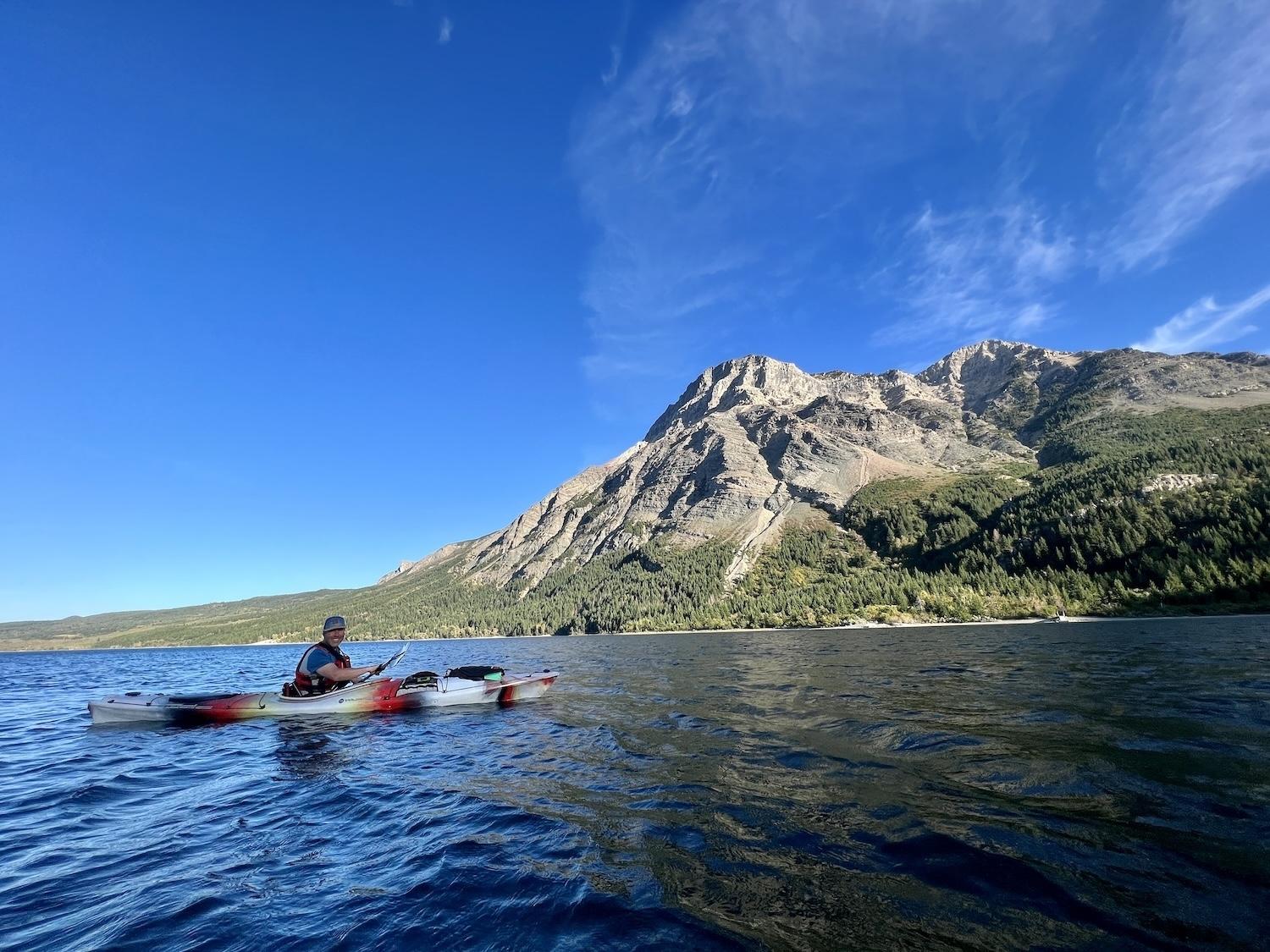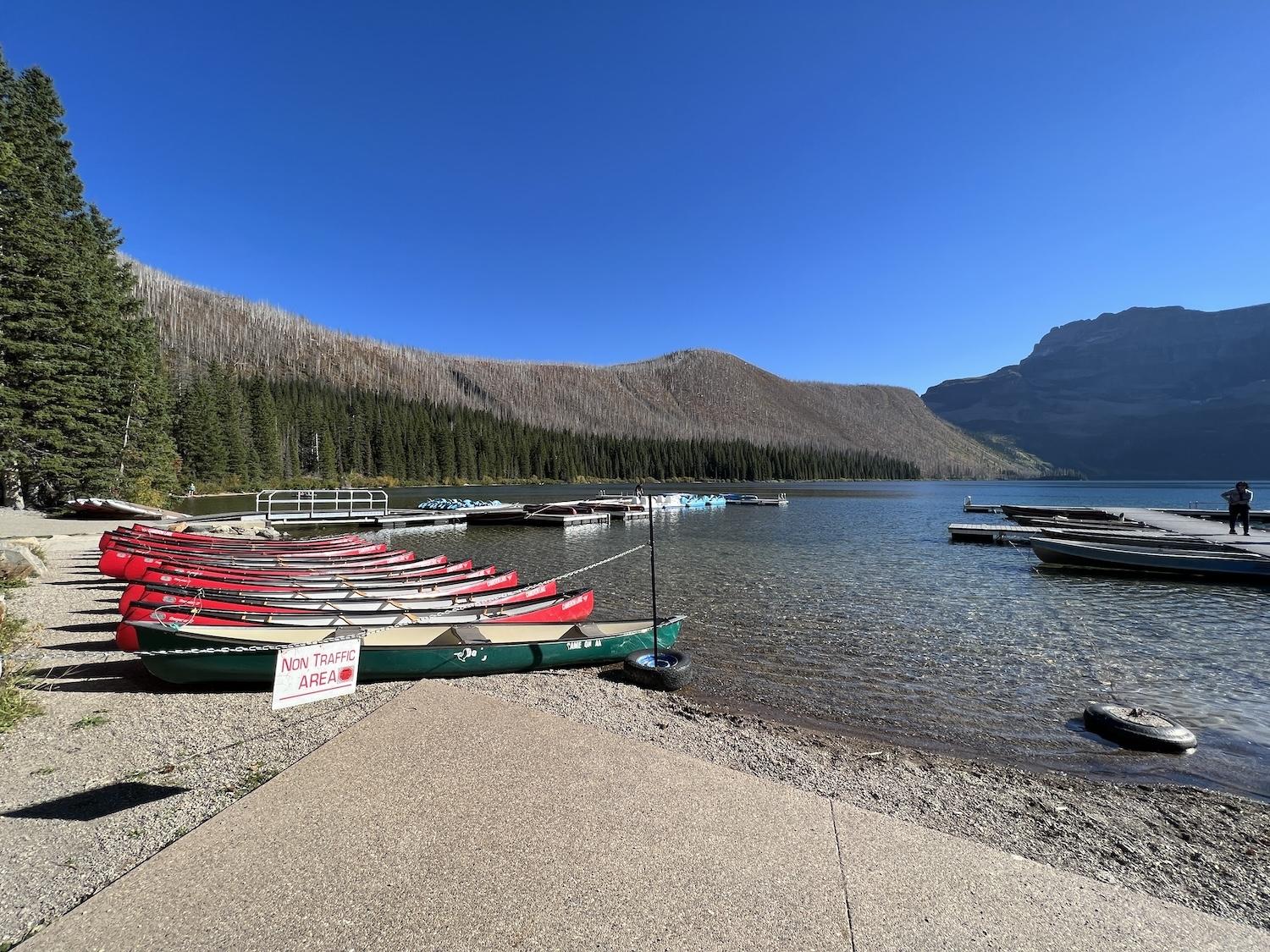A September 2023 view of Waterton Lake from the townsite of Waterton in Waterton Lakes National Park. Parks Canada has announced non-motorized boat and angling restrictions for 2024/Jennifer Bain
Waterton Lakes National Park is introducing more stringent regulations for non-motorized water recreation and angling due to increased risk of aquatic invasive species (AIS) introduction.
Starting Apr. 1, non-motorized watercraft from outside park boundaries won’t be permitted to enter waterbodies within the Alberta park. Angling for all fish species won’t be permitted in flowing waters (streams and rivers) in the park but will continue as per current regulations in park lakes.
Non-motorized watercraft include canoes, kayaks, rafts, stand-up paddle boards (inflatable and hard), sailboats, paddle boats, belly boats, drift boats, windsurfers, kite boards, inflatable watercraft, pedal assist kayaks, catamarans, hydrofoils, catarafts and other amphibious watercraft.
Under the new rules, exempt watercraft will still be allowed to launch in the park. This includes rental businesses operating inside Waterton and users whose watercraft don’t leave park boundaries.
Owners must take a short course on AIS and have their watercraft inspected by Parks Canada staff to qualify for this exemption.

Rental businesses operating in Waterton Lakes National Park must take a short course on aquatic invasive species to launch non-motorized watercraft in 2024. Carey Tetzlaff, lead guide with Tamarack Outdoors, is shown kayaking on Middle Waterton Lake in 2023/Jennifer Bain
Waterton Lakes is the headwaters of the Waterton River, feeding into the Oldman River and the broader South Saskatchewan River watershed. Due to high recreation within the park and the places in which park visitors and their watercraft arrive from, these waters are at high-risk for AIS introduction. Parks Canada is taking action now to reduce the spread of AIS in park and regional waters, including invasive mussels and whirling disease.
Whirling disease is already present downstream of the Waterton dam, and in 2023 it was detected for the first time within park boundaries. Mortality rates can reach 90 per cent in young fish and there is no treatment.
Harmful invasive mussels like zebra and quagga mussels are already present in other Canadian
and U.S. jurisdictions and pose a significant threat to the ecological integrity of aquatic ecosystems. The state of Idaho spent $3 million in 2023 to remove the quagga mussel infestation in the Snake River. Thousands of fish were also killed in the treatment process.
The changes in Waterton Lakes come alongside similar AIS prevention measures being extended in other mountain parks including Yoho National Park and Kootenay National Park in British Columbia.
Last October, Parks Canada closed all water access in Yoho and Kootenay following the discovery of a suspected case of whirling disease — the first detection of whirling disease in the province.
Further testing uncovered whirling disease detections in the Kicking Horse River, Wapta Lake, Finn Creek, Monarch Creek and the confluence of the Emerald and Kicking Horse River.
To reduce the risk of further spread of whirling disease and protect vulnerable species at risk, access to all waterbodies in Yoho and Kootenay was restricted until March 31.

Rental businesses operating in Waterton Lake National Park — like Cameron Lake Boat Rentals — can take an aquatic invasive species course to be exempt from new restrictions concerning non-motorized watercraft/Jennifer Bain
Waterton Lake also reported its first detection of whirling disease in 2023, in the Belly River.
Over the winter months, Parks Canada conducted an in-depth options analysis to determine how to best mitigate the risk posed by whirling disease to sensitive aquatic ecosystems and vulnerable species at risk in Yoho, Kootenay, and Waterton Lakes.
To reduce the risk of further spread of whirling disease, all waterbodies in Yoho and Kootenay national parks are closed to watercraft and angling until March 25, 2025 to help protect fish species vulnerable to whirling disease, including several trout species and Kokanee salmon.
This closure will also provide Parks Canada with an opportunity to conduct further sampling and monitoring actions, which will inform future management actions.





